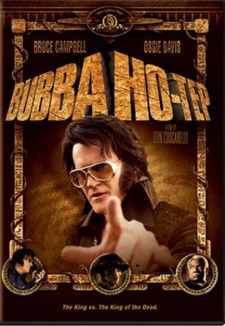The Next Supreme
Hunter at the Daily Kos, brings us an op-ed from the NYTimes that attempts to define the term "activist justices", a favorite phrase on the right. In the NYT piece we find that the conservative justices are much more likely to strike down existing laws, legislate from the bench so to speak, than the more liberal justices. It delineates quite neatly actually - Thomas 65.63 % Kennedy 64.06 % Scalia 56.25 % Rehnquist 46.88 % O'Connor 46.77 % Souter 42.19 % Stevens 39.34 % Ginsburg 39.06 % Breyer 28.13 % - four conservatives, O'Connor in the middle, then four liberals. So why don't the Christian right ask for what they really, really want, activist judges who will slap down congress and reshape laws according to their religious principles.
The right are looking for people like:
Emilio M. Garza, 57, is a judge for U.S. Court of Appeals for the 5th Circuit and has been on the short list for a Supreme Court nomination before. Garza has developed a reliably conservative judicial record that includes criticism of the Roe V. Wade abortion decision of 1973. In 1997, Garza sided with the majority in upholding a lower court decision that struck down parts of a Louisiana law requiring parents to be notified when a minor child seeks an abortion. In his concurring opinion, however, he expressed doubts about whether Roe v. Wade was well-grounded in the Constitution.
"[I]n the absence of governing constitutional text, I believe that ontological issues such as abortion are more properly decided in the political and legislative arenas," Garza wrote. ". . . . [I]t is unclear to me that the [Supreme] Court itself still believes that abortion is a 'fundamental right' under the Fourteenth Amendment. . . ."
Edith Hollan Jones, 56, has been a judge on the U.S. Court of Appeals for the 5th Circuit in New Orleans since 1985, having been nominated by President Ronald Reagan. Known as a strong and outspoken conservative, she has written opinions that called into question the reasoning behind the Roe v. Wade abortion ruling, has been an advocate for speeding up death penalty executions, and is a vocal proponent of "moral values." She also wrote a 1997 opinion throwing out a federal ban on the possession of machine guns and has been an advocate for toughening bankruptcy laws.
In a recent interview with the American Enterprise Institute, she bemoaned the Senate treatment of several controversial appeals court nominees. "Nominees are accused very unfairly of things that they didn't do," she said. "For someone like Judge [Charles W.] Pickering to be called a racist is a vile lie. For someone like Judge [William] Pryor to be attacked on the basis that he is a Catholic and therefore cannot judge cases fairly strikes at the heart of the notion of religious tolerance in our society. And the character assassination of Priscilla Owen reached unconscionable bounds."
J. Michael Luttig, 51, has been a favorite in conservative legal circles for decades, going back to his clerkship for then-Judge Antonin Scalia on the U.S. Court of Appeals for the D.C. Circuit in 1982-83. President George H.W. Bush appointed him to the Richmond-based U.S. Court of Appeals for the Fourth Circuit in 1991, when Luttig was just 37 years old. Ever since, he has been spoken of as a likely choice for the Supreme Court should a Republican president have a chance to name him. His many supporters on the right, including ex-law clerks sprinkled throughout the Bush administration, think now is Luttig's time.
This has sometimes led him to clash with other members of the 4th Circuit, including fellow conservative J. Harvie Wilkinson, also thought of as a Supreme Court contender. In 2000, he dissented from a ruling by Wilkinson that upheld a Fish and Wildlife Service regulation limiting the killing of endangered wolves on private land. He also disagreed with Wilkinson in 2003, when he wrote a dissenting opinion that supported the Bush administration's position that it could designate and detain "enemy combatants" with little judicial scrutiny.
In 1998, he upheld Virginia's ban on the procedure known as a partial birth abortion -- but agreed to let it be struck down after the Supreme Court struck down a similar Nebraska law in 2000.
All have a proven track record of voting THEIR religious principles, while ignoring the constitutional rights of the rest of us, and it is a good bet that who ever Bush nominates (and is eventually confirmed) they will be in the top bracket of judges who strike down laws for reasons of their own design. The next time you read or hear someone on the religious right bemoan the nation's liberal judges and justices, ask them how they define activism. Then find out if they can pat their head and rub their stomach at the same time.


<< Home